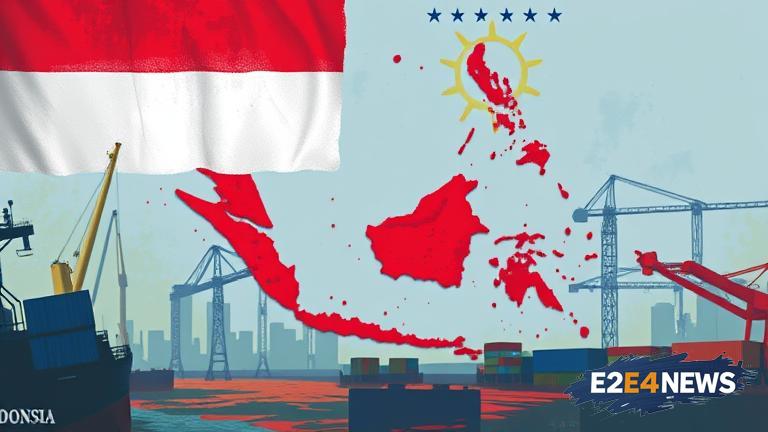Indonesia is rushing to complete trade deals with Europe and Canada as a strategic hedge against the looming US tariffs. The country aims to diversify its trade partners and reduce dependence on the US market. With the US-China trade tensions escalating, Indonesia is seeking to strengthen its economic ties with other regions. The Indonesian government has been actively engaging in trade negotiations with the European Union and Canada, with the goal of finalizing agreements by the end of the year. These trade deals are expected to provide Indonesian businesses with greater access to European and Canadian markets, thereby reducing their reliance on the US. The move is also seen as a way to counterbalance the potential negative impacts of the US tariffs on Indonesian exports. Indonesia’s trade minister has stated that the country is committed to increasing trade with other regions, particularly the EU and Canada, in order to reduce its vulnerability to US trade policies. The EU and Canada are significant trade partners for Indonesia, with the EU being the country’s third-largest trading partner and Canada being a major investor in Indonesia’s mining and energy sectors. The trade agreements with the EU and Canada are expected to cover a range of areas, including tariffs, non-tariff barriers, and trade facilitation. Indonesia is also seeking to increase trade with other countries in the region, including Australia and Japan. The country’s trade strategy is focused on diversifying its trade partners and reducing its dependence on any one market. This approach is seen as a way to promote economic stability and resilience in the face of global trade uncertainties. The Indonesian government has also been working to improve the country’s trade infrastructure, including its ports and logistics systems, in order to facilitate greater trade with other regions. The trade deals with the EU and Canada are expected to have a positive impact on Indonesia’s economy, with predictions of increased exports and investment. However, there are also challenges associated with the trade agreements, including the need to comply with EU and Canadian regulatory standards. Indonesian businesses will need to adapt to these new standards in order to take advantage of the trade agreements. The trade minister has stated that the government will provide support to businesses to help them comply with the new standards. The trade agreements are also expected to have a positive impact on Indonesia’s agricultural sector, with increased exports of products such as palm oil and coffee. The Indonesian government is also seeking to increase trade with other countries in the region, including China, in order to promote economic cooperation and integration. Overall, Indonesia’s trade strategy is focused on promoting economic diversification and resilience in the face of global trade uncertainties. The country’s efforts to complete trade deals with the EU and Canada are seen as a key part of this strategy, and are expected to have a positive impact on Indonesia’s economy in the long term.
